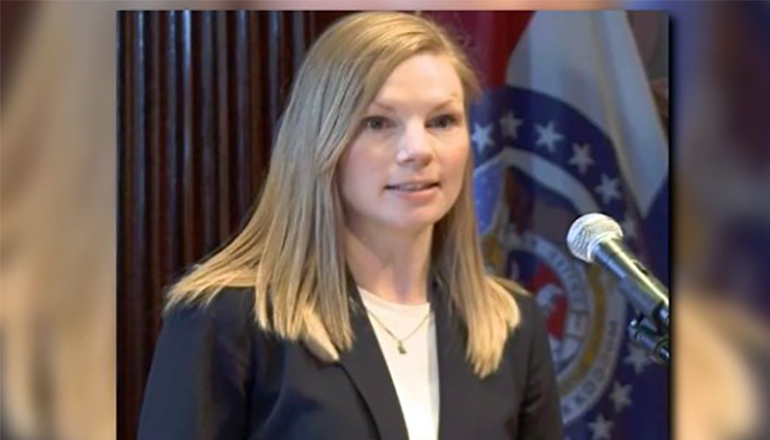Missouri State Auditor Nicole Galloway has released an audit of the city of Harrisonville, located in Cass County in western Missouri. The report describes a city that has overextended itself and overcommitted on a number of taxing district projects.
A lack of planning has led to inadequate funding and taxing districts layered on top of each other, boosting sales tax rates in the area. Even with multiple sources of public dollars flowing in, the projects haven’t managed to generate enough revenue to keep pace with payments due, leaving taxpayers on the hook several times over.
“The city of Harrisonville is a prime example of the dangers of allowing taxing districts to proliferate unchecked,” Auditor Galloway said. “City officials must ensure proper planning and monitoring of projects that rely on public funding to prevent these situations where the city is double taxing citizens.”
Financial management issues plague two redevelopment and revitalization projects that depend on revenue from both Transportation Development Districts (TDDs) and Tax Increment Financing Districts (TIFs). In both the Towne Center Redevelopment Area and the Market Place Redevelopment Area, a TIF is layered on top of a TDD. The city issued a total of $30 million in tax increment financing and revenue notes and bonds for these projects, but development has not kept pace with expectations. In both cases, the developments have failed to generate enough revenue to make required principal and interest payments on the projects. For the Towne Center Redevelopment Project, the city inexplicably secured the debt on behalf of the developer and has had to pay more than $1 million out of its general fund to make up the shortfall.
“In this example, the developer is taking almost no risk because the city agreed to back a private project with additional public funds,” Auditor Galloway said. “When developers count on public dollars to back their private projects, it opens the door for a lack of accountability. Citizens are left paying the price when projects fail to generate the promised developments and revenue.”
In addition, the city doesn’t adequately track the remaining debt on each project’s individual funding source, which increases the risk that money will be used inappropriately or for unapproved uses. Because of the number of overlapping project areas, it also increases the risk that debts will be paid off in the incorrect order.
In a separate project, the city is using restricted utility funds to pay for road improvements, which is not allowed. The city committed to a $24 million redevelopment project for improvements to the I-49 / Highway 71 and Highway 291 interchange on the east side of town. The city did not plan for full funding of the project and intends to use $200,000 in general revenue and more than $1 million in restricted utility funds. The city is only supposed to use these restricted funds for their intended utility-related purposes, and not for general operations of the city, including road projects.
The report raises concerns about the city’s failure to follow purchasing policy and the failure to solicit bids for more than $1 million in purchases ranging from vehicles and body cameras to road oil and catering services.
Auditor Galloway also made recommendations to improve the city’s compliance with the Sunshine Law. The report shows the board of aldermen went into closed session for reasons that are not allowable under state law. The city also failed to publish legally required financial statements.
The city received an overall performance rating of poor, which means the State Auditor’s Office will return within the next year to gauge progress and complete a follow-up review.
A complete copy of the city of Harrisonville audit report is online.







